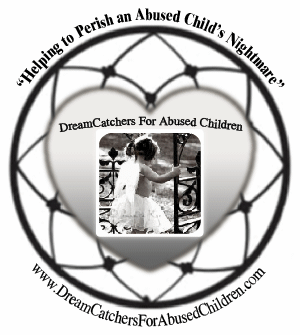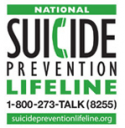Copyright/Fair Use
THIS SITE IS FOR EDUCATIONAL PURPOSES ONLY!!
***FAIR USE***
Copyright Disclaimer Under Section 107 of the Copyright Act 1976, allowance is made for “fair use” for purposes such as criticism, comment, news reporting, teaching, scholarship, education and research. Fair use is a use permitted by copyright statute that might otherwise be infringing. Non-profit, educational or personal use tips the balance in favor of fair use.
See More Here
***********************************************************
OUR WEBSITE IS FOR EDUCATIONAL PURPOSES ONLY!!!!
FAIR USE DEFINITION:
(SOURCE: http://en.wikipedia.org/wiki/Fair_use )
Fair use is a doctrine in United States copyright law that allows limited use of copyrighted material without requiring permission from the rights holders, such as for commentary, criticism, news reporting, research, teaching or scholarship. It provides for the legal, non-licensed citation or incorporation of copyrighted material in another author’s work under a four-factor balancing test. The term “fair use” originated in the United States. A similar principle, fair dealing, exists in some other common law jurisdictions. Civil law jurisdictions have other limitations and exceptions to copyright.
This site is protected by, or with: Copyscape & Creative Commons
Please click here to see what you are allowed to use and how.
What is Copyright?
Copyright is a form of protection provided by the laws of the United States
to authors of “original works of authorship.” When a work is published under
the authority of the copyright owner , a
notice of copyright may be placed on all publicly distributed copies or phono records.
The use of the notice is the responsibility of the copyright owner and
does not require permission from, or registration with, the Copyright Office
(http://www.copyright.gov)

This work is licensed under a Creative Commons Attribution-NonCommercial-NoDerivs 3.0 Unported License.
U.S. COPYRIGHT OFFICE—-FAIR USE DEFINITION
(SOURCE: http://www.copyright.gov/fls/fl102.html )
One of the rights accorded to the owner of copyright is the right to reproduce or to authorize others to reproduce the work in copies or phonorecords. This right is subject to certain limitations found in sections 107 through 118 of the copyright law (title 17, U. S. Code). One of the more important limitations is the doctrine of “fair use.” The doctrine of fair use has developed through a substantial number of court decisions over the years and has been codified in section 107 of the copyright law.
Section 107 contains a list of the various purposes for which the reproduction of a particular work may be considered fair, such as criticism, comment, news reporting, teaching, scholarship, and research. Section 107 also sets out four factors to be considered in determining whether or not a particular use is fair:
1. The purpose and character of the use, including whether such use is of commercial nature or is for nonprofit educational purposes
2. The nature of the copyrighted work
3. The amount and substantiality of the portion used in relation to the copyrighted work as a whole
4. The effect of the use upon the potential market for, or value of, the copyrighted work
The distinction between fair use and infringement may be unclear and not easily defined. There is no specific number of words, lines, or notes that may safely be taken without permission.
Acknowledging the source of the copyrighted material does not substitute for obtaining permission.
The 1961 Report of the Register of Copyrights on the General Revision of the U.S. Copyright Law cites examples of activities that courts have regarded as fair use: “quotation of excerpts in a review or criticism for purposes of illustration or comment; quotation of short passages in a scholarly or technical work, for illustration or clarification of the author’s observations; use in a parody of some of the content of the work parodied; summary of an address or article, with brief quotations, in a news report; reproduction by a library of a portion of a work to replace part of a damaged copy; reproduction by a teacher or student of a small part of a work to illustrate a lesson; reproduction of a work in legislative or judicial proceedings or reports; incidental and fortuitous reproduction, in a newsreel or broadcast, of a work located in the scene of an event being reported.”
Copyright protects the particular way an author has expressed himself. It does not extend to any ideas, systems, or factual information conveyed in the work.
The safest course is always to get permission from the copyright owner before using copyrighted material. The Copyright Office cannot give this permission.
When it is impracticable to obtain permission, use of copyrighted material should be avoided unless the doctrine of fair use would clearly apply to the situation. The Copyright Office can neither determine if a certain use may be considered fair nor advise on possible copyright violations. If there is any doubt, it is advisable to consult an attorney.
FL-102, Revised May 2009
Home | Contact Us | Legal Notices | Freedom of Information Act (FOIA) | Library of Congress
U.S. Copyright Office
101 Independence Avenue SE
Washington, DC 20559-6000
(202) 707-3000
**Quoting and citing material & articles is not theft. Especially if it is cited with a link back and credited to the original source.
**You cannot “sue us” for posting a link to an already public article
**For more information on the various licenses and copyright protections ranging from “all rights reserved” to “no rights reserved”, see Creative Commons in addition to the links above.
**The purpose of our website is to inform and educate the public on child abuse.



















![Validate my RSS feed [Valid RSS]](http://dreamcatchersforabusedchildren.com/wp-content/uploads/2009/10/valid-rss.png)












